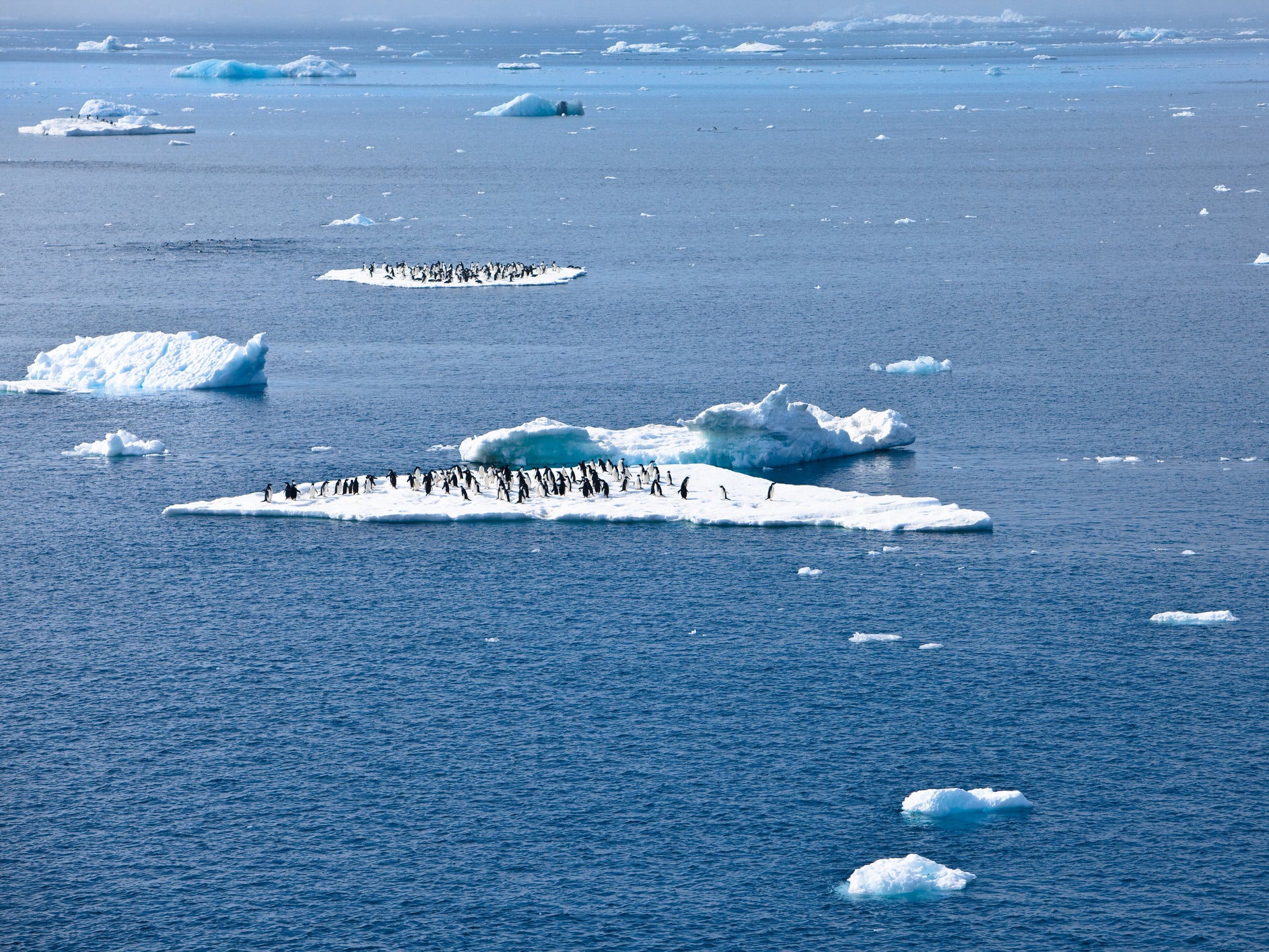This website uses cookies so that we can provide you with the best user experience possible. Cookie information is stored in your browser and performs functions such as recognising you when you return to our website and helping our team to understand which sections of the website you find most interesting and useful.

The extent of the summer sea ice in the Weddell Sea in Antarctica has decreased by one million square kilometres – roughly twice the size of Spain – in just the last five years, scientists have warned.
The Weddell Sea is a huge bay in the Antarctic continent where explorer Sir Ernest Shackleton famously lost his ship The Endurance to pack ice in 1915, and it is one of the few areas surrounding the continent which usually retains sea ice all year round.
But levels of ice in the bay have begun to fall sharply. The amount of ice in the Weddell Sea was first monitored beginning in the 1970s, but the total area of summer sea ice has now fallen by a third over the last five years.
Scientists are now sounding the alarm as the ice around Antarctica provides vital habitats for many species including penguins and seals, which rely on its continued existence to access food and to breed.
The team studying the alarming recent trends said the loss of the ice in recent years occurred during a series of severe storms in the Antarctic summer of 2016/17, along with the reappearance of an area of open water in the middle of the pack ice (a phenomenon known as a polynya), which had not occurred since the mid-1970s.
Lead author Professor John Turner, a climate scientist at British Antarctic Survey, said: “Antarctic sea ice continues to surprise us. In contrast to the Arctic, sea ice around the Antarctic had been increasing in extent since the 1970s, but then rapidly decreased to record low levels, with the greatest decline in the Weddell Sea.
“In summer, this area now has a third less sea ice, which will have implications for ocean circulation and the marine wildlife of the region that depend on it for their survival.”
During winter in the southern hemisphere, the ocean around Antarctica freezes to such an extent that it effectively doubles the size of the continent, with the sea ice reaching over 18 million square kilometres (6.9 million square miles) by late September.
Through the spring and summer, the sea ice almost completely melts in most parts of the Antarctic, with only the Weddell Sea retaining a significant amount of sea ice.
There are few storms around the Antarctic in the summer months, but in December 2016, a number of intense and unseasonal storms developed in the Weddell Sea and drew warm air towards the Antarctic, melting a large amount of sea ice. The ice-free ocean absorbed energy from the sun and then created a warm ocean temperature anomaly that still persists today.
The winter of 2016 also saw the development of a polynya in the Weddell Sea, a large area of open water within the sea ice, which also contributed to the overall decline in sea ice extent. This polynya was created by the strong winds associated with the storms and unprecedented warm ocean conditions, The British Antarctic Survey said.
This rapid sea ice loss is having an impact on both the Weddell Sea ecosystem and wider Antarctic wildlife.
Many species, ranging from tiny ice algae and krill, to seabirds, seals and whales, are highly adapted to the presence of sea ice.
The scientists said if the drastic changes observed continue, they will have repercussions throughout the food chain, affecting the availability of nutrients and causing a reduction of essential habitat for breeding and feeding for vast numbers of animals.
Author and ecologist Professor Eugene Murphy from the British Antarctic Survey said: “The dramatic decline in sea ice observed in the Weddell Sea is likely to have significant impacts on the way the entire marine ecosystem functions. Understanding these wider consequences is of paramount importance, especially if the decline in ice extent continues.”
Due to the large year-to-year variability in Antarctic sea ice extent the scientists cannot be sure if the ice in the Weddell Sea will recover in the short-term to the values seen before 2016 or whether they are seeing the start of the expected long-term decline of sea ice.
The research is published this month in the journal Geophysical Research Letters.



 Africana55 Radio
Africana55 Radio 

